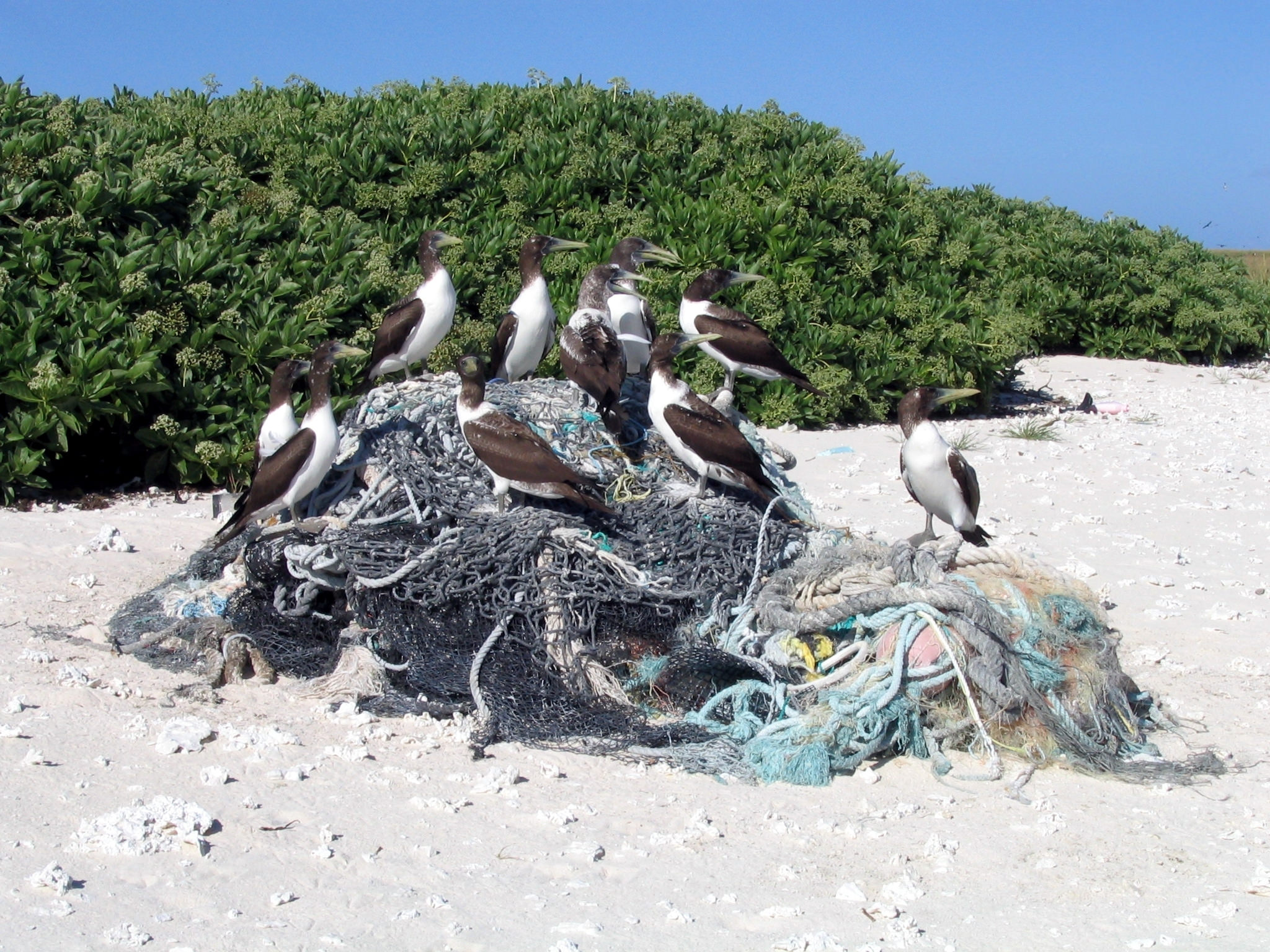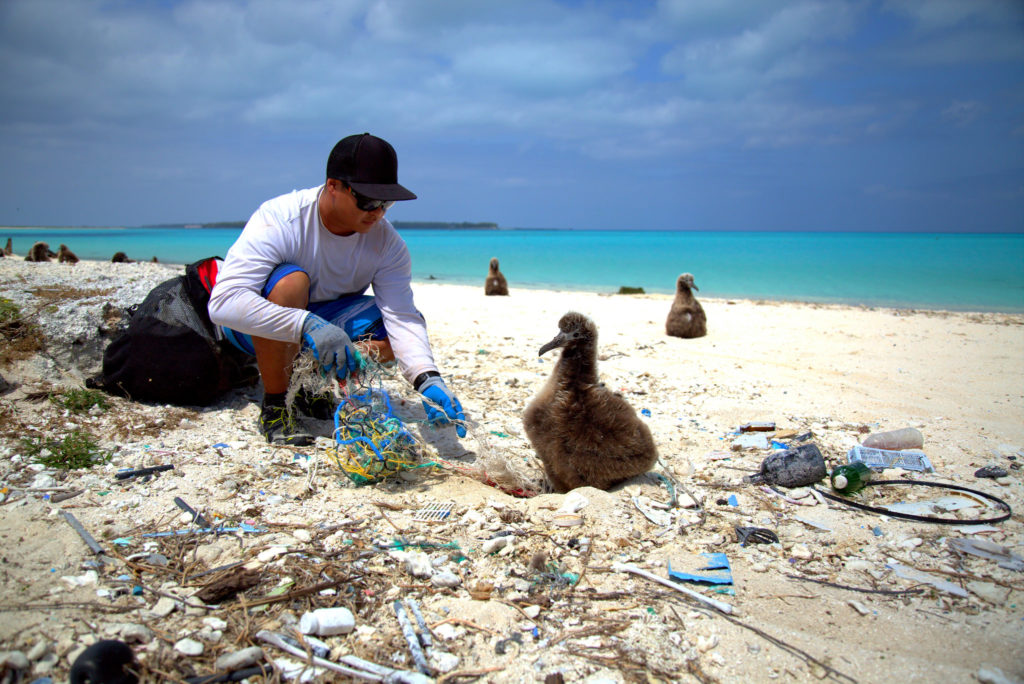
Plastic Pollution: One of Ocean Conservation’s Grand Challenges
More than 300 million tons are produced each year, yet only 10% of plastic products get recycled. The rest goes into the trash and much of it ends up in the ocean. It is estimated that as much as 7 million tons of plastic are added to waterways each year.
The New York Times recently reported on one study that suggests fish in the North Pacific ingest as much as 48 million pounds of plastic debris annually.
Plastics never decompose on its own in the ocean. It breaks into smaller pieces, which can be dangerous to wildlife when ingested. Marine debris has become one of the most prevalent pollution problems for our ocean, according to the U.S. National Oceanic and Atmospheric Administration. Marla Damanski, European Union commissioner for Maritime Affairs and Fisheries, reports that Mediterranean Sea pollution has hit alarming proportions.
In addition, microplastics that are less than 3/16th of an inch are found in waterways. Microparticles may come from larger pieces that have broken down over time, or pre-produced particles used in manufacturing.
How Is It Harmful?
Debris can be attached to a natural food source, such as fish eggs, and be ingested accidentally. It can also be mistaken for a food source like jellyfish or plankton. When animals ingest plastic, it can cause irritation to the animal’s digestive system. Plastic pieces can remain in the stomach rather than passing through and cause the animal to feel full and avoid eating. This can lead to starvation or malnutrition. The plastic pieces themselves can lead to internal injuries as it is digested, intestinal blockages, and other potentially fatal complications. Some studies suggest that may cause concerns for human consumption of fish that have ingested plastics.
Marine life can also become trapped or entangled in plastic marine debris. The World Society for the Protection of Animals estimates that as many as 135,000 whales are entangled yearly.
In addition, plastic debris can contain pollutants such as PCBs (Polychlorinated Biphenyl) far in excess of what is found naturally in seawater. Though banned in the United States in 1979, and on the international front in 2001, they are still found in waterways today.
Scientists have reported instances where various marine organisms have attached themselves to plastics and other debris, traveling hundreds of miles to places where it is not natively found. These organisms can cause significant damage to fisheries and local ecosystems.
Bio-based plastics and Biodegradable plastics are now being produced, but they do not degrade in water. They are designed to break down when placed in compost piles or landfills where microbes and pressure cause them to degrade in high temperatures.
Ocean Plastics In The News
A number of companies have announced they will get rid of plastic drinking straws and begin reducing single-use plastic products and commit to more sustainable packaging. American Airlines, Starbucks, Hyatt, Alaska Airlines, Royal Caribbean, Marriott International, Bon Appetit, and others have joined the growing list of companies that are phasing out plastic straws. Some California cities, like Malibu, Oakland, and Berkeley have passed laws banning plastic straws as have Seattle, Miami Beach, Fort Myers Beach, and St. Petersburg in Florida. Similar legislation is pending in New York City, Hawaii, and California.
And companies like Parley for the Ocean and 4Ocean are making products out of recycled ocean plastic. Sales of these products help support efforts to clean up marine debris and bring attention to this grand challenge in conservation.

You Can Make A Difference
You can make a difference in tackling the ocean plastics problem whether you live near the ocean or not. Here are some ways you can help:
- Refuse single-use plastic items (shopping bags, bottles, straws)
- Choose to buy things that are not packaged with plastics
- Participate in a cleanup (it could be a local trail or a beach)
- Choose products that do not contain microbeads
- Recycle and dispose of trash publicly
- Spread the word!
The National Marine Sanctuary Foundation is dedicated to educating the public on the importance of preventing and addressing marine plastic pollution, removing marine debris from the environment, and rescuing animals that are affected by it. Donate to support our efforts and make a difference for national marine sanctuaries and our world’s ocean.
